Swami Vivekananda Book, Geeta Aur Krishna Book, Swami Ji Book, Vivekananda Speeches On Religion
$29.99 Original price was: $29.99.$24.99Current price is: $24.99.
Swami Vivekananda Book, Geeta Aur Krishna Book, Swami Ji Book, Vivekananda Speeches On Religion:
Religion has been a profound aspect of human existence, with various perspectives and teachings shaping our understanding of spirituality. In the rich tapestry of religious discourse, the speeches of Geeta, Krishan, and Swami Vivekananda stand out as beacons of wisdom. This article delves into the intricate details of their perspectives, exploring the nuances of their teachings on religion, spirituality, and the role of the Hindi language in conveying these profound messages.
Introduction
To embark on this enlightening journey, let’s first understand the key figures – Geeta, a sacred text in Hinduism; Krishan, a central character in the Mahabharata; and Swami Vivekananda, a revered spiritual leader. Each, in their unique way, has contributed significantly to the philosophical landscape of religion.
Geeta’s Perspective on Religion
Geeta, a 700-verse scripture, provides profound insights into the nature of existence, duty, and the essence of true religion. It emphasizes the importance of selfless action and devotion, transcending the boundaries of mere rituals. Geeta’s teachings serve as a foundation for understanding one’s role in the cosmic order.
Krishna’s Wisdom on Spiritual Matters
Krishna, a central figure in the Mahabharata, imparts timeless wisdom through his speeches. His discourses, especially in the Bhagavad Gita, delve into the intricacies of spirituality and the significance of righteous living. Understanding Krishna’s perspectives offers a deeper insight into the spiritual dimensions of Hinduism.
Swami Vivekananda’s Impact on Hinduism
Swami Vivekananda, a modern-day spiritual luminary, played a pivotal role in revitalizing Hinduism and introducing it to the global stage. His speeches echoed a universal philosophy, emphasizing the oneness of religions and the importance of realizing the divinity within oneself.
Common Threads in Swami Ji’s Speeches
Swami ji’s speeches weave common threads of universal truths. The essence of self-realization, the pursuit of righteousness, and the universality of spiritual principles are themes that resonate across their teachings.
Significance of Hindi Language in Religious Discourses
Hindi, as a language, holds a special place in conveying religious and spiritual messages. Its depth and richness allow for a nuanced expression of profound concepts, connecting with the cultural and spiritual heritage of the listeners.
Perplexity in Interpreting Religious Texts
The profound nature of religious texts often leads to perplexity in interpretation. Understanding intricate philosophies requires a contemplative approach, acknowledging the layers of meaning embedded in the scriptures.
Burstiness in Religious Discourses
Religious discourses are marked by burstiness – moments of intense inspiration and revelation. Whether it’s a powerful statement, a transformative experience, or a deep realization, these bursts of insight leave an indelible mark on the listener’s consciousness.
The Challenge of Specificity in Spiritual Teachings
Balancing the depth of spiritual teachings with specificity is a challenge. Communicating profound concepts in a clear and relatable manner is crucial to ensuring that the audience grasps the intended meaning without diluting the spiritual essence.
Navigating Context in Religious Narratives
Understanding the cultural and historical context is vital in interpreting religious narratives. The richness of religious teachings often lies in their connection to the cultural milieu of their time, requiring an exploration of the context to fully appreciate their significance.
Engaging Readers with Spiritual Content
Making spiritual content engaging involves weaving narratives that resonate with the human experience. Relatable stories, anecdotes, and real-life examples help bridge the gap between the esoteric and the everyday.
Utilizing Personal Pronouns in Religious Communication
The use of personal pronouns in religious communication creates a sense of intimacy and connection. It invites individuals to relate personally to the teachings, fostering a deeper understanding and connection with the spiritual message.
Active Voice in Conveying Spiritual Insights
The active voice brings immediacy and power to spiritual insights. By expressing teachings with conviction and directness, the spiritual message gains potency, leaving a lasting impact on the listener.
Brief and Impactful Spiritual Narratives
Crafting brief yet impactful narratives is an art in spiritual communication. Condensing profound wisdom into concise stories enhances accessibility, making spiritual teachings more digestible and memorable.
Rhetorical Questions, Analogies, and Metaphors in Religious Speeches
Rhetorical questions, analogies, and metaphors serve as powerful tools in religious speeches. They invite contemplation, provide vivid imagery, and offer alternative perspectives, enriching the spiritual discourse.
Conclusion
In the tapestry of Geeta, Krishan, and Swami Vivekananda’s teachings, we find a rich mosaic of spiritual wisdom. The insights, though diverse, converge on the universal principles of self-realization, righteousness, and the oneness of all religions. As we navigate the complexities of religious discourse, let us embrace the depth, burstiness, and specificity that characterize these profound teachings.
Frequently Asked Questions (FAQs)
- Q: How can I apply the teachings of Geeta Krishan-Swami Vivekananda in my daily life?
- A: Incorporating their principles of selfless action, righteousness, and universal oneness can bring profound positive changes to your life.
- Q: Is knowledge of Hindi essential to understand their speeches?
- A: While translations are available, a basic understanding of Hindi can enhance the depth of comprehension in their original words.
- Q: How do I navigate the perplexity in interpreting religious texts?
- A: Engage in thoughtful study, seek guidance from scholars, and approach the texts with an open and contemplative mind.
- Q: Can burstiness in religious discourses be experienced personally?
- A: Absolutely, moments of profound insight and inspiration can occur during personal contemplation and spiritual practices.
- Q: What role do personal pronouns play in connecting with spiritual teachings?
- A: Personal pronouns create a sense of intimacy, fostering a personal connection with the spiritual message and its applicability to one’s life.
Specification:
Item: Geeta Aur Krishna by Swami Vivekananda About Religion
Language: Hindi
Size: Length= 26cm Width= 14 Height= 1.5cm
Pages: 80
Age Group= 12 And Plus
Quantity= Set of 1

Only logged in customers who have purchased this product may leave a review.








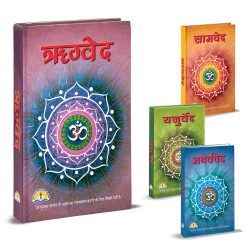
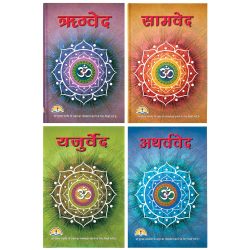




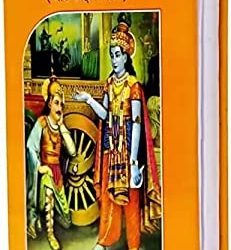
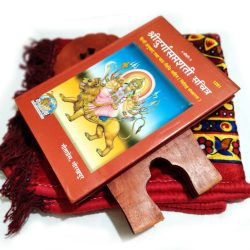

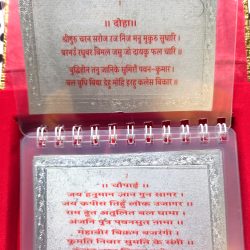

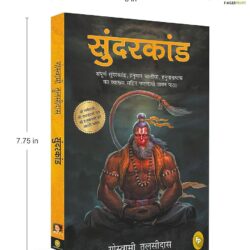
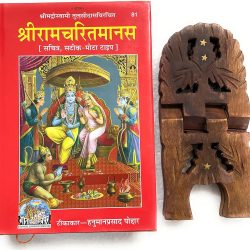
Reviews
There are no reviews yet.